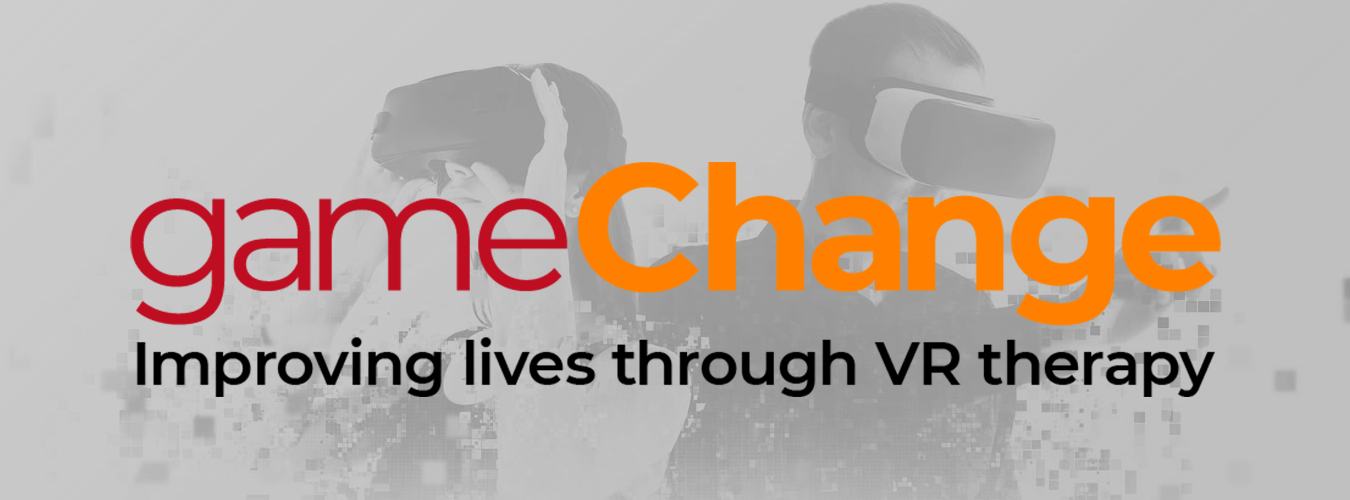June 28, 2019 – Oxford VR has announced that it is commencing a large-scale multi-site trial to test VR therapy treatment for psychosis to advance its rollout by the NHS and Social Care. Oxford VR has been an integral collaborator in ‘gameChange’, a GBP £4 million project funded by the UK National Institute of Health Research (NIHR), which has helped demonstrate the clinical value of Oxford VR’s proprietary development capability that the company has accelerated since its 2018 funding round.
The gameChange trial is being led by Daniel Freeman, Professor of Psychology at the University of Oxford. Other collaborators include Oxford University, Oxford Health NHS Foundation Trust, The McPin Foundation, The Royal College of Art, NIHR, MindTech and several NHS mental health trusts. Given the high costs associated with treating psychosis estimated to be in the region of £4 billion* by 2026 for NHS England, the automated nature of the treatment means it could provide a low-cost option to complement existing care. The study team will also analyse the cost-effectiveness of the VR therapy and produce a commissioning case and implementation roadmap for VR Therapy to be used in the NHS nationwide.
Earlier this month, Oxford VR announced a similar VR program for mental health treatment, named ‘Yes I Can’, in partnership with AXA HK and the Chinese University of Hong Kong.
Psychosis is a serious mental illness which can affect individuals’ thoughts, feelings and behaviours, and can lead to anxiety and withdrawal from everyday life. For the majority of individuals with psychosis, everyday tasks can become extremely challenging. Work and home life suffer, and mental and physical health deteriorates. Each year the NHS cares for over 200,000 people with psychosis accounting for approximately 30% of total NHS and Social Care expenditure. This patient population has a life expectancy that is 14.5 years shorter than the rest of the population**.
The immersive nature of VR allows people to experience situations they find troubling in a ‘safe space’ where they know the interaction isn’t real – however the benefits of the VR interaction can still transfer to the real world. The treatment is automated and an avatar clinical coach guides the patient through VR scenarios, helping them to practice techniques to overcome their difficulties. According to Oxford VR, by applying gaming technology design to virtual reality treatment scenarios, patients report finding it easier to do this work in the virtual world – and that they even enjoy using the VR application.
Commenting on the announcement, Barnaby Perks, Founding CEO of Oxford VR, said: “We are at a moment of real change in advancing treatment for serious, complex, and costly mental health conditions, and gameChange will show how the very best psychological science, when combined with scaleable, state-of-the-art VR technology, can revolutionise treatment and deliver a superior patient experience. gameChange shows that Oxford VR has the know-how and capacity to go beyond the primary care to create a standard treatment for more challenging and costly mental health conditions.”
The gameChange clinical trial is the second phase of the GBP £4 million project to enable state-of-the-art VR therapy for psychosis to be delivered by the NHS. 432 patients have been recruited to participate in the gameChange clinical trial to test VR Therapy for psychosis across and several NHS mental health trusts.
* The King’s Fund, The cost of mental health care in England to 2026
** National Institute for Health Research UK, 2019
Image credit: Oxford VR/gameChange
About the author
Sam is the Founder and Managing Editor of Auganix. With a background in research and report writing, he has been covering XR industry news for the past seven years.

 In
In